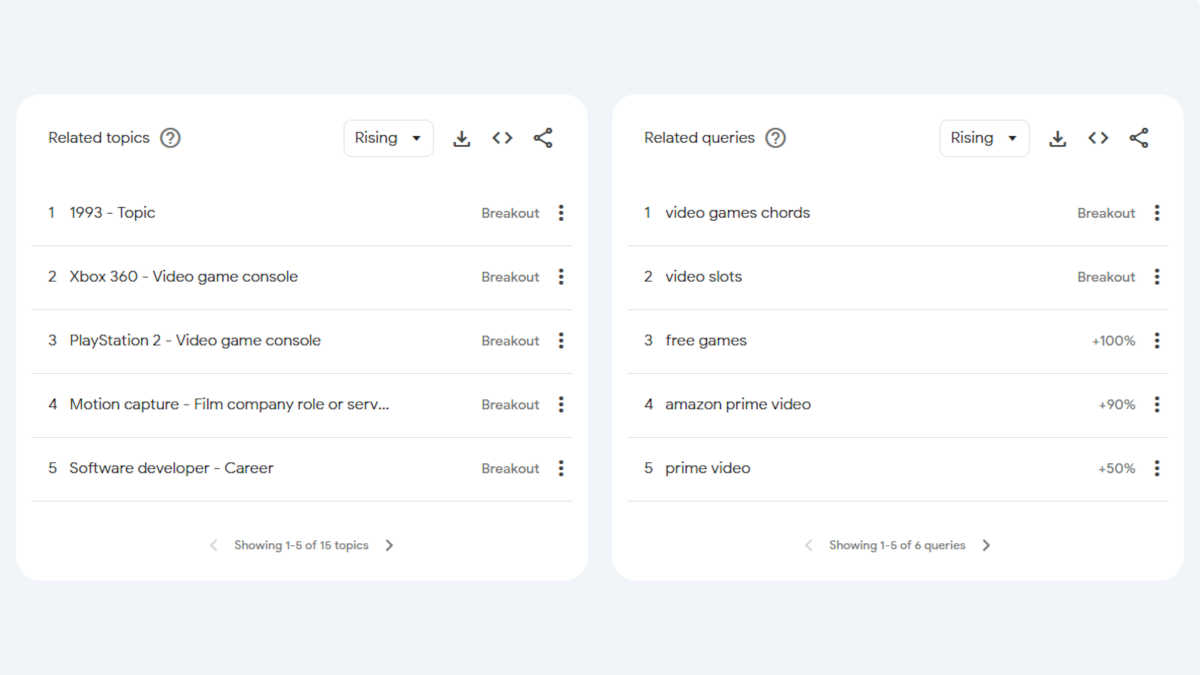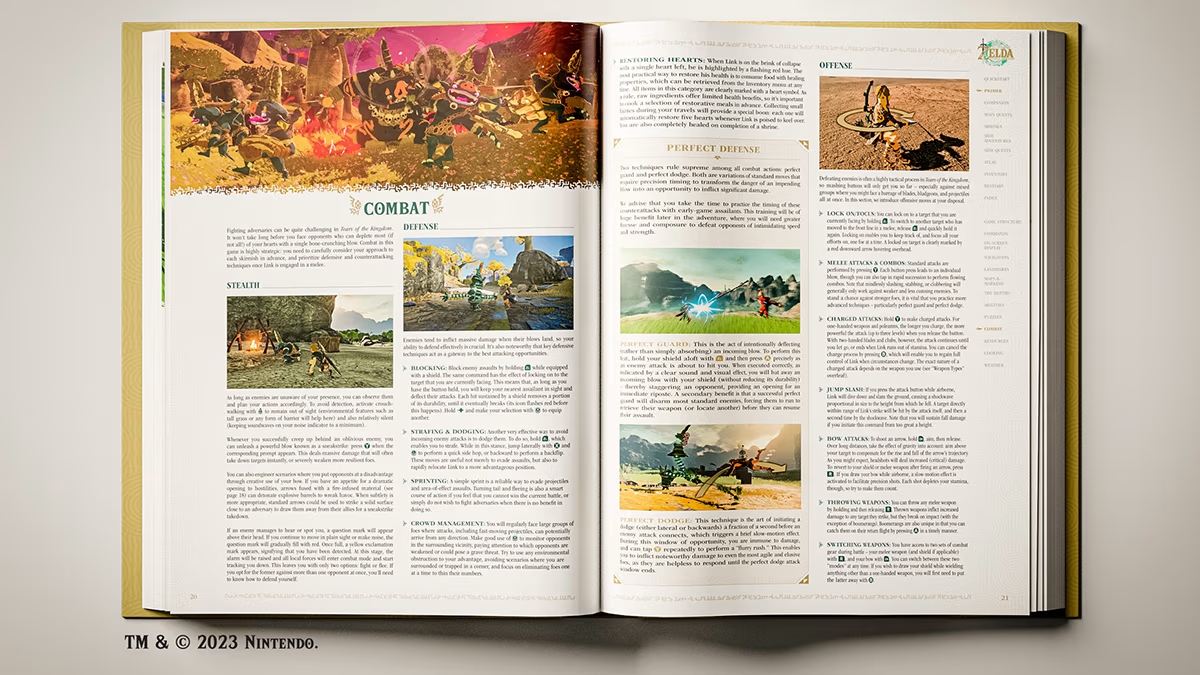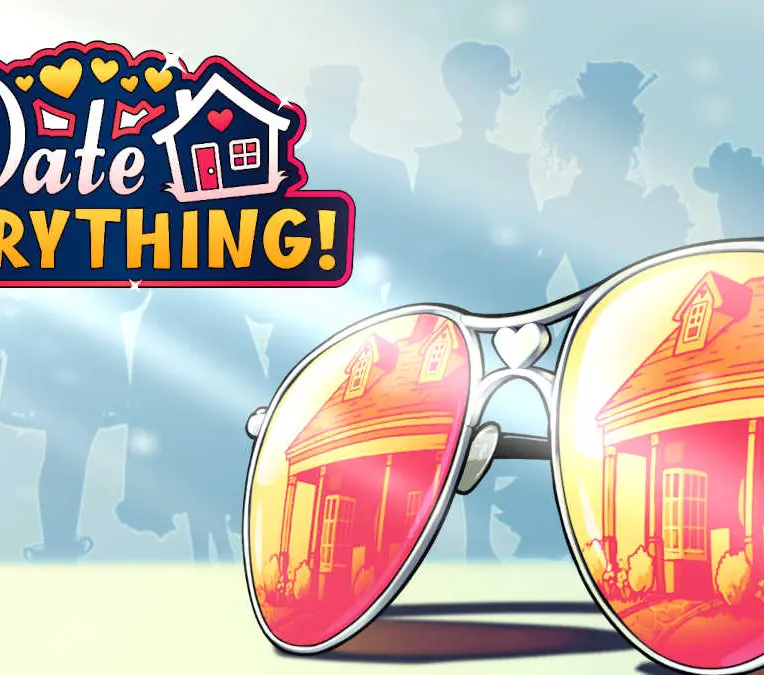448Views 6Comments
It’s an argument spewed across Reddit, X, and various other social media: Some variation of the “gaming journalism is dead” rhetoric. Whether it’s “gaming journalists have lost their integrity”, or “all these sites put out are pointless guides.” Well, as someone who works within the gaming journalism sphere, I have to be honest, it’s more than a little demoralizing.
But do you know what? I get it. I understand completely how disappointing it can be to see a decade-old publication, beloved for being true to itself for all that time, turn into a guide site. It’s frustrating, and it’s turning the entire concept of gaming journalism into a bit of a joke. But that doesn’t have to be the case. Change is coming, it’s inevitable, but it’s going to take time and effort to get there.
What exactly is SEO?

Before you can really understand what’s currently going on with gaming sites and why they’re turning into churn-and-burn factories for guides and other unnecessary content, you need to have a brief understanding of SEO and how it works.
SEO, or Search Engine Optimization, is the beast that most websites, especially big ones, spend their entire lives trying to chase. It is the standard by which all websites are forced to measure themselves against, to some degree, and it pretty much all boils down to one thing:
Pleasing Google and fulfilling their ever-changing list of demands to get onto the front page when somebody searches for a topic. Admittedly, it’s not just Google, but let’s face it, it is the Voldemort in this situation.
Gone are the days when Google would return search results based solely on the words you searched for. Nowadays, there are a whole string of things that all sites must include and optimize if they stand even the slightest hope of getting onto Google’s front page:
- Keywords
- Authority
- Loading times
- Images
- Backlinks
- Meta descriptions
- Meta tags
- Readability
I could go on, but it all seems like a lot, right? And this is mostly what’s known as ‘on-page’ or ‘on-site’ SEO. There’s also ‘off-site’ and ‘technical’ SEO, neither of which I’m going to get into here, but I think it’s safe to say that websites are up against a lot when trying to be successful. If you want a full idea, here’s an SEO ‘checklist’ detailing all of the concepts that can affect how Google sees a site.
And, on top of everything else, there’s one SEO thing that most gaming sites chase more than anything else: Trends.

Here’s the thing, and something I can both understand and despise simultaneously, trending topics will always bring in more clicks, especially if a site can jump on that trend before others can. Those ‘breakout’ searches can bring a lot of traffic, but it’s a fickle world, and they never last long.
As writers for the bigger sites, we’re always told to check trends, back up pitches with trending data, and make sure that we get on any trends quickly to make sure we rank well. It’s always a race, and not only does that impact the quality of the writing, but it also destroys the enjoyment of the thing you’re writing about.
With new game releases, the trends tend to favor ‘How to…’ and ‘Where is…’, and in terms of SEO, those are going to be the hard hitters. The click-getters, so to speak.
The worst part of all of this? Those clicks and that traffic that’s sourced from SEO pandering isn’t the good kind. Visitors will come, get their information, and then leave. The site doesn’t earn a returning visitor, because those kinds of readers click on the first link they see on Google, regardless of where that site leads them. They aren’t loyal to the brand; they just get their information and bounce.
Okay, this section got way longer than I expected it to. Moving on…
Why are gaming sites filled with guides these days?

I’ll let you in on a little secret, that you can either choose to believe or not: Most writers working for games sites don’t enjoy writing guides, although they can be fun from time to time. We do it because that’s what is demanded of us, and at the end of the day, we have families to feed and bills to pay. We have to do the work that we’re allowed to do, because otherwise we just wouldn’t survive. Honestly, we all miss the days when games had their own purchasable guidebooks, right?
A lot of us want to write those funny stories, with personal anecdotes, or about an amazing new indie game we’ve found on Steam. But those stories aren’t good for SEO, because who’s going to be searching for a 30-year-old game when the latest AAA release is soaring up the charts? Indies might be great, but they don’t have the player numbers that SEO managers look for. Those heartfelt, personal stories don’t get clicks when everyone and their aunt are looking up how to find something in the game that came out a week ago.
Topic relevancy is the key, central point of all SEO, and large (usually corporation-owned) sites are constantly chasing those trending topics to get ahead of the others. It’s infuriating, I know, but that’s the long and short of it. Writers aren’t allowed to write passionately because their passions aren’t considered click-worthy to a large audience. It’s demoralizing, depressing, and as someone who worked through burnout for months, I can say with absolute authority that it destroys any enjoyment a writer may have felt in their work.
Those guides that you’ve seen on a writer’s author page or in their portfolio? They’re not their proudest work. Those aren’t the links they send to would-be employers when seeking a role elsewhere. Those are the survival pieces. The pride comes from passion, and those rare passionate interviews, reviews, or special interest pieces? Those are the links we share, those are where our pride is hidden, squashed, and disregarded by sites wanting more clicks and less personality.
If you want quality, seek independence

That honesty and integrity you loved about those sites, before they were acquired and turned into SEO churn-and-burns? You won’t find it on corporate-owned sites, or at least not very often. Sure, it’s there, hidden among the guides and Roblox codes, but it gets buried almost as quickly as it gets published. So, where do you go for honest, passionate writing?
Well, you come here.
Okay, so not necessarily to Output Lag alone, although we’re very glad to have you and urge you to come back. You can even add your own words and opinions to this site in the form of a Community Blog. I know, it’s a strange concept, but we aren’t chasing SEO, and most of the other independent gaming sites aren’t either.
See, that’s where you need to go if you want something real. Independent gaming sites are popping up at a staggering rate, but they hardly ever appear on the front page of Google because they aren’t pandering to the SEO gods (or demons, I suppose) to make it happen. They favor honesty and integrity over clicks. They offer real personalities, not writing that sounds like it’s been passed through an AI engine a couple of times and sounds identical to the 20 other articles pushed out within two hours on release day.
To prove this hasn’t, here’s some utter nonsense, written badly, with far more grammatical- and speling errors than ChatGPT would ever allow. See, real. Honest.
Well, that felt rather freeing and slightly strange. I feel like I just stood up to my childhood bully, and I desperately want to fix those errors. Anyway…
Most of these independent sites aren’t created to make money, or even necessarily to rake in the visits (although it’s always a perk to know your writing resonates with someone). They’re born from passion, and more often than not, they’re created by writers who have escaped (or been thrown out of) the SEO churn-and-burn world. Independent sites are filled with passionate writers, sick of the daily grind, writing about what impassions them.
If you’re wondering where these sites are – because let’s face it, Google doesn’t make them easy to find – here’s a whole list of independent gaming sites. Go ahead, dive in and get reading.
We’re in the middle of a forest fire

The landscape of gaming journalism is, now more than ever, a complete mess. Sites are being bought out at a staggering pace, mostly by corporations that view them as nothing more than numbers on a screen and additional sources of income. Those sites become dollar signs in CEOs’ eyes, and they lose their personality quicker than you can click. Not to mention that those CEOs have zero interest in gaming. It’s a recipe for disaster.
But, and I know this is hard to believe, I honestly feel like this is the middle of a forest fire. And what happens after a forest fire? The forest regrows, bigger and stronger than it has ever been before. The gaming journalism landscape can do that, too. Sadly, this takes time.
In this case, the regrowth and regeneration of an honest and integrity-filled gaming journalism landscape can only happen if people start giving more attention to independent publications. It’s easy to Google something and click on the first link that comes up, so this will take some effort, but finding and being loyal to some independent sources will slowly give them authority (remember that from earlier?) and push them up the rankings. Linking to those sites, on social media or other websites, will tell Google that they can be trusted and are loved.
I’m sorry to do this, Smokey Bear, but I’m going to steal your catchphrase and mix it up to make it relevant:
“Only you can help further this forest fire.”



6 Comments
by StarHunter42
Man, I totally get where this article is coming from. As a gamer who’s active on Reddit and Discord, I’ve seen the shift in gaming journalism firsthand. It’s tough when sites you used to rely on for in-depth reviews and unique perspectives start churning out generic guides for clicks. I miss the days when gaming journalism felt more authentic and focused on the love of games rather than SEO and trends. It’s a changing landscape for sure, but I hope we can still find those hidden gems of insightful gaming content out there!
by PIXELPHANTOM87
The article nails how journalism sites are ditching nuanced takes on emergent mechanics for generic how-to guides. It’s weird to see a place that once broke down combo systems now just listing loot tables and DPS tweaks. Feels like they traded actual level design and boss-AI insight for SEO farming.
by NinjaGamer99
TBH, all these SEO-focused guide sites just rinse and repeat the same meta builds and loot routes. I miss when articles would deep-dive into patch notes or dev interviews, not just farming spreadsheets. Feels like actual critique got lost in the quest for clicks.
by shadoWSTrIKE7
I’m not really vibing with sites pushing “Top 5 builds” SEO crap instead of diving into patch notes or boss mechanics. Feels like they swapped dev insights for generic guide spam just to hit those traffic goals. I’d rather see a legit take on how nerfs messed up the combat loop than another clickbait weapon tier list.
by CRYPTIC_BLITZ7
every legacy outlet is shifting from deep-dive features into SEO-driven guides and feeling like a surprise nerf to journalistic standards
by ClikITY
ngl I miss the old deep dives more than anything 😤. Back in the day I’d budget my lunch money just to snag the latest issue and pore over those features, now it’s all listicles and clickbait fluff. But lowkey seeing sites experiment with new formats is actuallygreat